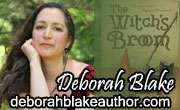Experimental Magic: The Evolution of Magic
Experiment with your magical practice by learning how to apply art, pop culture, neuroscience, psychology, and other disciplines to your magical work, as well as exploring fundamental underlying principles of what makes magic work. You'll never look at magic in the same way!
Hierarchy, Musical Harmony, and Magic
In Music Power Harmony, R. J. Stewart presents an interesting take on the concept of hierarchy as it relates to musical harmony and how that can be applied to magical work. He argues that hierarchies aren't inherently linear or spatial and that treating a hierarchy as a series of separate entities with linear connections ignores holistic aspects of the hierarchy that could be useful in magical work. When examining hierarchy from a harmonic perspective, Stewart notes that harmonics can open our awareness to resonances and relationships between the patterns and entities involved, in such a way that it provides order without necessarily bringing authority into the mix. It's an interesting take on hierarchy, which is typically treated as a linear structure with temporal authority included in it.
The problems that most people have with hierarchy is the abuse of authority or the bureaucracy that makes it convoluted and unable to do anything. Typically hierarchies are associated with corporations, governments, and other such institutions. These institutions enforce hegemonic authority and standards that keep certain agendas in power, while keeping others out. It's not a surprise then that people have knee jerk reactions to hierarchy. Yet I think R. J. Stewart makes some interesting points about hierarchy as it relates to both music and spiritual work.
Stewart's take on hierarchy is holistic, in that a hierarchy is a system of connections and patterns, which rely upon each other to create the hierarchy. He uses music to explain this holistic take, noting that music is put together as a harmony, where each note is placed in in a hierarchy to create the harmony and create the experience. The hierarchy plays a role in creating the harmony that is used in the music. It's an interesting take, which suggests that hierarchy can have a harmonious aspect to it (though some might argue that such harmony is really homogeneity).
So how's all this apply to magic?
I think that Stewart's concept of hierarchy and harmony can be applied to magic in a very specific way that enables the magician to understand a given magical act from a musical perspective. If we consider a magical act to be a harmony, it is a harmony where every action is put into a specific place in order to create a pattern of resonance that interacts with reality to bring a change. The hierarchy in the harmony places a role of balance, where everything involved in the magical working is used to play its own part, but also lead into and away from the other parts in order to create the necessary harmony that brings the desired change into reality.
Now you might wonder why this should even matter or be considered relevant to magic, but what I find useful in a different perspective such as the one offered by Stewart is that it gets you to look at magic in a different way than you normally would. I think its important to look at magic from different perspectives outside your own, because I find that if you adhere too closely to your own perspective you lose something eventually, namely an appreciation for magic and the way it used in our lives to influence our place in the world.
I look at this musical interpretation of hierarchy, in relationship to harmony, and what I see is a take on magic that looks at it as music, with a recognition that music is a fundamental force of nature. Music changes us and changes our experience. And using music as a form of magic and as an interpretation of magic is quite fascinating because it makes you appreciate how the structure of one discipline can be applied to another. And at the same time I'm aware that Stewart's take on both music and magic is just one take on each discipline, and that other people will disagree and take other approaches.
That's the thing about magic, and any other discipline really: for a discipline to evolve and grow we need to entertain multiple perspectives and be open to working with that discipline in ways that aren't conventional and challenge what we think we know about the world and about the discipline. And if we have a knee jerk reaction to a take on a discipline, that's when we really need to explore it, not because we'll ultimately agree with it, but because it will challenge our own perspectives and regardless of whether we do or don't change our perspectives, it is good to challenge our practices and consider how we might change them. It is only in challenging what we do that we discover what we can do.
Comments
-
Please login first in order for you to submit comments

















